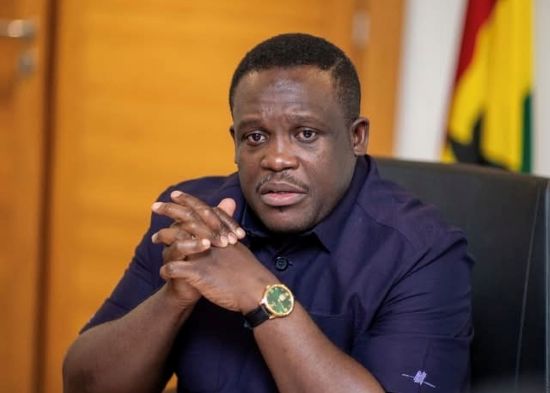adverts
A storm of public anger is brewing across Ghana over what consumers are calling a “vanishing data” crisis—where mobile internet bundles appear to be depleting at record speed despite a recent 15% price increase across telecom operators.
The controversy erupted shortly after a new pricing policy came into effect on July 1, 2025, following months of negotiations and digital advocacy efforts. The Ministry of Communications and Digital Innovation, led by Minister Sam George, announced a sector-wide review aimed at increasing value for consumers.
According to the minister, the reforms required:
adverts
- MTN Ghana to implement a 15% increase in data volume across all packages.
- AirtelTigo and AT Ghana to apply a 10% boost to their existing bundles.
- The reinstatement of the popular ₵399 bundle on MTN to deliver 214 GB of data.
“These measures were designed to ensure affordability and fairness,” the minister said during a press briefing. “We engaged telecom CEOs and stakeholders to make this happen for the Ghanaian people.”
But within days, consumers across the country began reporting the exact opposite—data packages running out faster than ever before, with little to no improvement in actual usage time.
Social media platforms are now overflowing with complaints from frustrated users. From university students to freelance workers and traders relying on mobile internet, many say the changes have only made things worse.
“I load ₵5 worth of data, and before I can finish replying to emails or watching a few videos, it’s gone,” said Akosua, a digital marketer in Kumasi. “Before, ₵1 could last a whole day. Now, it’s like throwing it into the sea.”
Kwame, a university student in Cape Coast, shared a similar experience:
“I monitor my usage carefully. Even with background apps disabled and auto-updates turned off, the bundles disappear too quickly.”
The phenomenon, dubbed “vanishing data,” has reignited old suspicions about how telcos track and deduct data.
At the heart of the issue lies data metering—the opaque and technical system telecom providers use to measure internet consumption.
Samuel Yeboah, a well-known digital rights advocate known as “Tech in Twi,” was one of the early champions for bundle restructuring. But even he has raised concerns over the new developments.
“We pushed for more data value. Now we’re seeing bizarre patterns. I personally tested my own data usage, and the numbers don’t match my activity,” Yeboah explained in a recent interview.
“I’m not accusing anyone yet, but we need independent audits. People are paying more and receiving less. That’s not right.”
Yeboah says his inboxes across WhatsApp, X (formerly Twitter), and Instagram are full of similar complaints. “When thousands of people across different regions report the same experience, it’s no coincidence,” he noted.
The current situation has left many Ghanaians in the dark, with no clear explanation from telecom providers about the disconnect between advertised bundles and user experiences.
Some users suspect that hidden background data consumption—like app updates, syncing, and autoplay features—may be to blame, but many say they’ve taken steps to restrict these functions, to no avail.
“I’ve disabled every background app. I’ve turned off autoplay. I even use data-saving browsers,” said Nana Aba, a content creator in Accra. “Yet the bundle still finishes in no time. Who’s fooling whom?”
Public outrage is mounting, with hashtags like #FixDataNow and #WhereIsMyData trending on social media. Some consumers are even calling for a national petition and class-action lawsuits.
“These telcos must open their books,” tweeted one user. “We need real-time dashboards and detailed breakdowns of our usage. No more blind deductions.”
This issue isn’t just about convenience—it’s about access. In Ghana, mobile internet is the primary channel for education, employment, commerce, and civic engagement. For millions, it’s the only way to participate in the digital economy.
As the cost of staying online increases, many fear that digital inequality will worsen, especially for low-income and rural communities.
So far, neither MTN Ghana nor other major telcos have issued detailed public responses addressing the “vanishing data” concerns. The National Communications Authority (NCA) has also remained silent.
But with digital reliance at an all-time high, pressure is mounting on both regulators and providers to act.
Until then, Ghanaians are left with a growing sense of frustration—and a shrinking amount of data.
“If we’re paying more,” said one user, “then give us more. Don’t just change the labels—change the experience.”
Click the link Puretvonline.com | WhatsApp Channel to join the WhatsApp channel
GOT A STORY?
Contact/WhatsApp: +233243201960 or Email: manuelnkansah33@gmail.com


